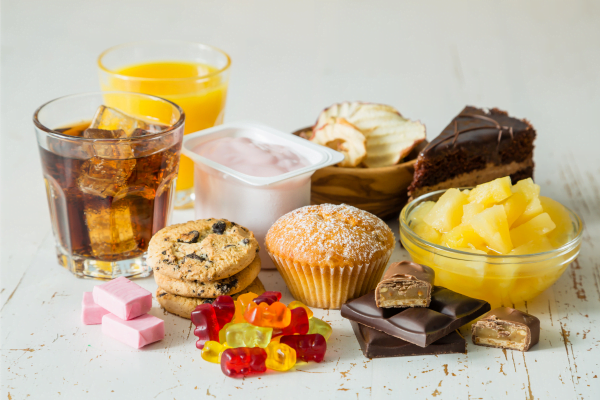Think of every meal as a little decision-making moment for your body. What you eat doesn’t just fill you up; it affects your energy, mood, and, most importantly, your blood sugar levels. If managing diabetes is like a puzzle, then diet is the biggest piece. It’s more than just avoiding sugar or counting carbs; it’s understanding how food affects you. Let us figure out how to spot and avoid those tricky foods and drinks that can mess with your blood sugar levels.
Diet and Diabetes
In managing diabetes, the impact of dietary choices on blood sugar levels is paramount. Certain foods and beverages can cause rapid fluctuations in blood glucose levels, necessitating careful consideration of dietary selections.
Central to this understanding is the management of carbohydrate intake. Carbohydrates are the leading energy source for the body, yet their consumption requires meticulous monitoring for individuals with diabetes. Striking a balance is crucial, as excessive carbohydrate intake can result in spikes in blood sugar levels, while inadequate intake can result in hypoglycemia.
Furthermore, the significance of diet extends beyond glycemic control. It has a vital role in minimizing the risk of diabetes-related complications. Adopting a balanced and nutritious diet contributes to the maintenance of optimal blood pressure, cholesterol levels, and body weight, thereby promoting overall health and well-being in individuals with diabetes.
Foods to Avoid for Better Blood Sugar Control
Making informed choices about what you eat is crucial for maintaining stable blood sugar levels. Here are some types of foods to be mindful of:
High Glycemic Index Foods: These are foods that quickly raise blood sugar levels, including white bread, white rice, and sugary cereals. When considering the best bread for diabetics, opt for whole grain varieties, which have a lower glycemic index and provide more fiber to help stabilize blood sugar levels.
Sugary Snacks and Sweets: Foods high in added sugars, such as candy, cookies, and pastries, can cause spikes in blood glucose levels and provide little nutritional value. When searching for the best snacks for diabetics, opt for options like nuts, seeds, Greek yogurt, or sliced vegetables with hummus.
Processed Foods: Many processed foods consist of hidden sugars, high levels of sodium, and unhealthy additives that can contribute to blood sugar imbalances. Examples include packaged snacks, frozen meals, and sugary breakfast cereals.
Trans Fats: Trans fats not only raise bad cholesterol levels but can also increase insulin resistance, leading to poorer blood sugar control. Healthier alternatives include foods rich in unsaturated fats like nuts, seeds, and avocado.
Beverages to Limit for Diabetes Management
Monitoring your beverage intake is equally vital as regulating your food consumption in diabetes management. Here are some beverages to be cautious of:
Sugary Drinks: Beverages like soda, sweetened teas, and energy drinks are packed with added sugars, which can rapidly elevate blood sugar levels and provide little nutritional benefit.
Fruit Juices: Natural fruit juices contain concentrated sugars that can cause blood sugar spikes. It’s necessary to consume them in moderation and consider alternatives like whole fruits, which provide fiber and slow down sugar absorption.
Alcoholic Beverages: Alcohol can interfere with blood sugar regulation and may cause hypoglycemia, especially if consumed on an empty stomach. Moderation and choosing lower-carb options like dry wine or light beer are key for individuals with diabetes.
Practical Tips for Making Healthier Choices
When tackling diabetes through dietary adjustments, even subtle changes can yield substantial enhancements in your well-being. Here are some practical strategies aimed at assisting you in making healthier choices:
- Reading Labels: Understand nutrition labels for informed food choices. Pay attention to serving sizes, total carbs, added sugars, and ingredients.
- Portion Control: Moderation is key. Be mindful of portion sizes, eat at a slow pace, and listen to your body’s hunger cues to manage weight and blood sugar levels.
- Healthy Substitutions: Swap high-sugar, high-fat foods for healthier options. Choose whole fruits over juices, whole grains over refined carbs, and lean proteins over fatty meats.
- Meal Planning: Plan for balanced meals with veggies, lean proteins, whole grains, and healthy fats, adhering to a no-sugar diet food list. Batch cooking and meal prep save time and ensure nutritious options.
- Dining Out: Navigate restaurant menus wisely. Opt for grilled or steamed dishes, salads with dressing on the side, and veggie sides. Request modifications for lower-carb options, avoiding sugary sauces.
By integrating these smart tips into your daily routine, with guidance from a diabetic nutritionist, you can take control of your diet and better manage your diabetes for improved overall health and well-being.
Frequently Asked Questions (FAQs)
What’s a suitable type 1 diabetes diet?
A suitable type 1 diabetes diet focuses on balanced meals comprising vegetables, fruits, whole grains, lean proteins, and healthy fats to aid in managing blood sugar levels. It involves monitoring carbohydrate intake, spacing meals evenly throughout the day, and coordinating insulin doses accordingly.
What foods have glucose?
Foods that contain glucose include carbohydrates such as bread, rice, pasta, fruits, dairy products, and starchy vegetables like potatoes and corn. Additionally, sugary snacks and beverages, including candies, cookies, soda, and fruit juices, are high in glucose content.
How many carbs should a diabetic have in a day?
The recommended daily carbohydrate intake for individuals with diabetes varies based on factors such as age, weight, activity level, and individualized treatment plans. However, a general guideline is to aim for about 45-60 grams of carbohydrates per meal, distributed evenly throughout the day to help stabilize blood sugar levels.


